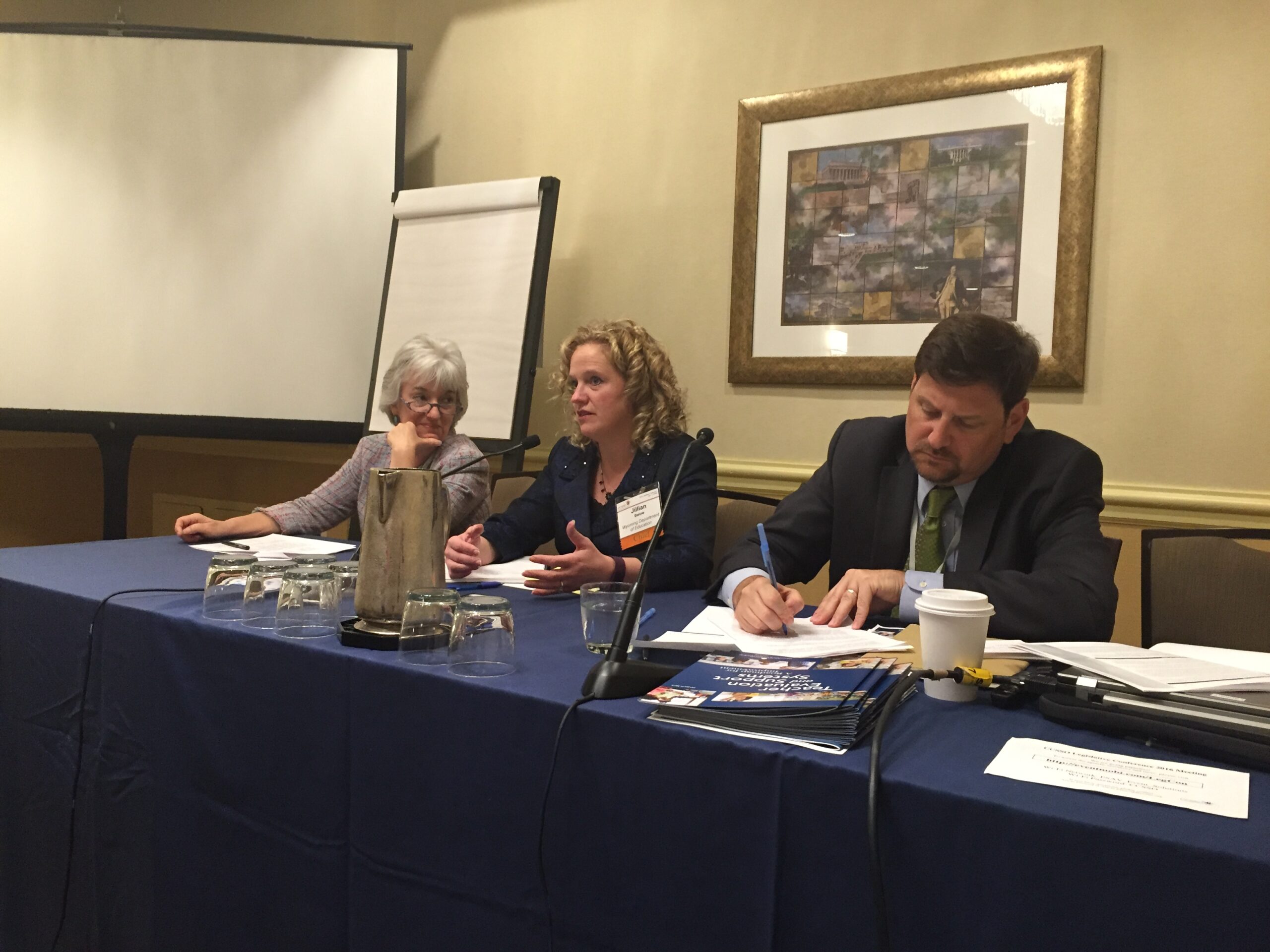Dear Superintendents,
Whether pronounced es-uh, ē-suh, E-S-S-A, or the Every Student Succeeds Act, the new federal law is beginning to creep into our daily education conversations. In what seems like a very short time from now, we will be implementing ESSA statewide; nationwide. In short, here’s why ESSA is different and more significant than any other implementation of federal law:
ESSA intentionally hampers the federal government’s role in education. With No Child Left Behind, states and school district checked boxes to assure they were meeting rigorous federal requirements related to student proficiency. Race to the Top and waivers (which Wyoming did not obtain) gave states money to do things a bit differently but states still played by federal government rules. ESSA literally prohibits the federal government from requiring or incentivizing important education components like standards, assessments, evaluation systems, and more.
Wyoming has work to do, as do all states. The good news is that we are already doing a lot of things right. NOT EVERYTHING WILL CHANGE under ESSA. The better news is that I will count on you as the key stakeholders in ESSA as we plan for full implementation. The best news is that we have an opportunity to deliberately and thoughtfully enhance our vision for improving school success and student outcomes.
As you know, Wyoming’s statewide vision for education is to create opportunities for students to keep Wyoming strong. We want to see all students prepared for the next steps in life: careers, college, or military service. ESSA strengthens this pathway for all of us.
Here are a few ways we will work to unpack ESSA for you:
- Bi-weekly phone calls with updates and Q&A opportunities
- Continued memos with information about important changes
- Resources for you to use when updating staff and/or your community
- ESSA updates at all WDE-sponsored professional development
This is an exciting time for all of us in education because we see the potential and long term impact on students. I encourage you to begin the conversation with school staff with a few starter questions:
- What are the most important things we hope ESSA accomplishes?
- What do we hope does not go away?
- How should the WDE interact with districts and schools during the transition from NCLB to ESSA?
I would love to see the responses generated by your teams!
My leadership team and I participated in a series of excellent conversations around ESSA, assessment, and career readiness. We are excited to move forward but recognize this cannot be a race. We are committed to making the transition inclusive, collaborative, and impactful.

Charlotte Danielson and I visited over dinner about how teacher evaluation systems should be used to coach and support for improvement, first and foremost. We also talked about evaluations under ESSA.
 I participated on a panel in DC with the Aspen Institute on the topic of teacher and leader quality. I was asked to specifically discuss Wyoming’s priorities for school leadership. In addition to speaking with school leaders in our state, here are two anchor documents I used in preparation:
I participated on a panel in DC with the Aspen Institute on the topic of teacher and leader quality. I was asked to specifically discuss Wyoming’s priorities for school leadership. In addition to speaking with school leaders in our state, here are two anchor documents I used in preparation:
ESSA, along with the Trustees Education Initiative, and the work already going on in our state presents an interesting opportunity for us to think about how we attract, prepare, develop, and retain great education leaders. Here are a few of the key points I shared during the panel:
- Leadership matters. The importance of moving great teachers into leadership positions and developing great leaders is an effort that we’ve already begun through our State System of Support. It’s time to make that as meaningful and sustainable as possible.
- Evaluations for leaders should be differentiated and focused on growth and improvement, not simply a “gotcha” or “doing fine.”
- Mentoring leaders is something we’ve identified in Wyoming as a lever. Let’s work to make it stronger.
- Engage school leaders in discussions and development of policy from the beginning.
- Wyoming will focus energy on aligning school leadership and support in areas from leadership prep programs to licensing to professional development.
- Wyoming should also examine the effectiveness and comparability of district evaluation systems versus a statewide evaluation system. There is merit in continuing with local systems if possible.

State Loan and Investment Board (SLIB) hears a presentation from UW Professor Phil Treick and his class. The class manages the UW Portfolio Fund, a portion of Wyoming’s corpus.
As State Superintendent, I sit on the State Loan and Investment Board (SLIB). Yesterday, the Board reviewed Wyoming Business Council projects and approved $10.8 million in grants and loans to communities across the state. It is an honor to partner with communities on infrastructure and business projects. The link to education is inextricable. It’s likely a community near you received funds. All projects will enhance our state and, coupled with a quality education system, are a draw for families to relocate or stay in our state. Here is a link to the press release about the new projects approved.
Memos to be released April 11:
- Memo 2016-058: MTSS District Coaching Opportunity
- 2016-058-attachmenta: MTSS District Coaching Application
- 2016-058-attachmentb: MTSS District Coaching FAQ
- Memo 2016-059: Free Summer Learning Opportunities for Wyoming Students
- Memo 2016-060: Science Standards Impact Survey
- Memo 2016-061: Assessment and Accountability System Changes
- 2016-061-attachmenta: Enrolled Act 55-Statewide Student Assessment
- 2016-061-attachmentb: Enrolled Act 64-Alternative Schools Accountability
- 2016-061-attachmentc: Wyoming Alternative School Accountability Framework
- 2016-061-attachmentd: Enrolled Act 16-Hathaway Scholarship Eligibility
- Memo 2016-062: Payments to PRTFs for Educational Services
- 2016-062-attachmenta: Enrolled Act 34-Payments for Educational Services
- Memo 2016-063: Changes to WDE636
- Memo 2016-064: WDE600 and WDE601 Collection Training
- Memo 2016-065: Spring 2016 WDE652 Collection Training
Jillian






